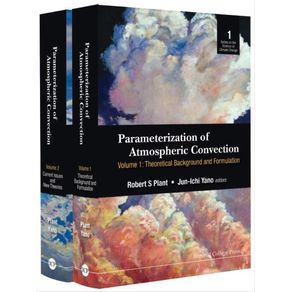Precipitating atmospheric convection is fundamental to the Earth's weather and climate. It plays a leading role in the heat, moisture and momentum budgets. Appropriate modelling of convection is thus a prerequisite for reliable numerical weather prediction and climate modelling. The current standard approach is to represent it by subgrid-scale convection parameterization.Parameterization of Atmospheric Convection provides, for the first time, a comprehensive presentation of this important topic. The two-volume set equips readers with a firm grasp of the wide range of important issues, and thorough coverage is given of both the theoretical and practical aspects. This makes the parameterization problem accessible to a wider range of scientists than before. At the same time, by providing a solid bottom-up presentation of convection parameterization, this set is the definitive reference point for atmospheric scientists and modellers working on such problems.Volume 1 of this two-volume set focuses on the basic principles: introductions to atmospheric convection and tropical dynamics, explanations and discussions of key parameterization concepts, and a thorough and critical exploration of the mass-flux parameterization framework, which underlies the methods currently used in almost all operational models and at major climate modelling centres. Volume 2 focuses on the practice, which also leads to some more advanced fundamental issues. It includes: perspectives on operational implementations and model performance, tailored verification approaches, the role and representation of cloud microphysics, alternative parameterization approaches, stochasticity, criticality, and symmetry constraints.

